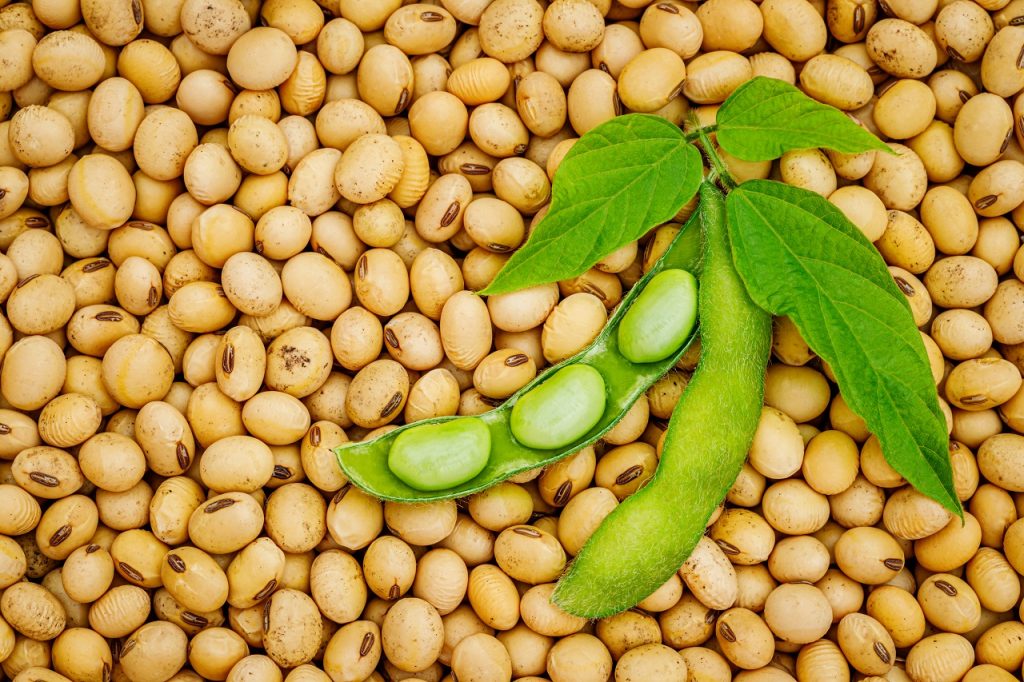
There is a booming market for vegan soy-based foods like soy milk, soy cheese, soy crisps, etc. and amid this high demand, the ongoing question is whether soy is bad for you! If you ask experts, you might get a dozen different responses. With soy slowly becoming a part of cereal, pasta et al, could too much of something be harmful? Is it bad for you? How much of it is too much? Let’s find out!
What is Soy?
The soybean is a type of legume originating from East Asia but is now grown and cultivated around the globe. The plant is used to produce different products apart from the edible bean itself, which includes milk, tofu and oil. Some fermented options are tempeh, sauce, natto and miso (which is a traditional Japanese paste made from fermented soybeans). Fermented soy products can actually offer a lot of health benefits since fermentation reduces enzyme inhibitors and makes soy’s nutrients more available.
Soybeans are used to make a variety of processed foods as well, which includes vegan meat substitutes and dairy-free yogurts and cheeses. Other compounds such as soy lecithin and soy protein isolate are often extracted from the plant and added to processed foods and supplements.
Nutritional Information
Soybeans are very rich in nutritive components. Besides the very high protein content, soybeans contain a lot of fibre and are rich in calcium, magnesium, selenium, vitamin E, niacin, vitamin B6, and pantothenic acid.
Potential Health Benefits
Soybeans contain several powerful compounds and phytochemicals that have been extensively studied for their beneficial effects on health, including isoflavones, plant sterols, prebiotics and many more. Some of the well studied health benefits are listed below:
- It may help lower cholesterol levels: Some research suggests that including soy foods in your diet may help manage cholesterol levels and promote better heart health. Also, while analyzing several studies, it has been found that consumption of Soy products reduces triglyceride levels, total cholesterol and LDL (bad) cholesterol. Whereas on the other hand, it boosts the HDL (Good) cholesterol.
- It may improve women’s health by improving menstrual cycle and increasing fertility: Several studies show that inclusion of soy products in one’s diet could help improve the chances of getting pregnant. It may improve regular ovulation and menstrual cycles and also increases the chances of becoming pregnant if anyone is undergoing fertility treatments.
- It may lower blood pressure: Soybeans may lower blood pressure because they contain isoflavones and studies indicate isoflavones might be effective in lowering blood pressure.
Risks and Side Effects
Although soy foods may be associated with several potential health benefits, there are a few side effects and risks that need to be considered as well.
- Impact on thyroid function: It contains goitrogens, substances that may negatively affect the thyroid by blocking iodine absorption. However, there’s no evidence that people who have hypothyroidism should avoid it completely. Generally, it’s best to wait four hours after taking thyroid medication to consume any products that contain soy. At the same time, we should be sure that we are consuming enough iodine to prevent adverse effects on health.
- Soy is GMO: Most soybeans today are genetically modified (GMO) and sprayed with pesticides. This introduces abundance of toxins that block the healthy absorption of essential minerals. GMOs are associated with a number of health concerns, including antibiotic resistance and a higher risk of developing food allergies. Selecting organic soy products is a simple way to ensure that the foods are produced from non-GMO crops.
- Negative impact on Men’ Health: The dangers of soy for men are a result of the high levels of the female hormone estrogen that soy and soy-based products contain. Primarily, it affects the quality and concentration of a male’s sperm, especially when taken in large quantities. Researchers found some drastic change in a group of men who consumed it in large quantities. Their sperm counts lowered down, slow beard growth, bulky breast development and change in emotions were noticed. Basically, some of them started developing female characteristics.
With all the controversial and conflicting information out there, many people are left wondering if it is bad for you? So what’s the verdict? Although there’s no need to give up on it completely, you may want to avoid eating it for breakfast, lunch and dinner. Also, a good amount of research is needed to determine the effect of consumption on overall health, as the majority of current studies suggest that selecting non-GMO, minimally processed, whole or fermented soy foods in moderation is likely safe and beneficial for most people. But before you consume any soy or soy product, do consult with your doctor, nutritionist or dietitian.
We hope this article helps you. For more on nutrition and healthy eating, check out Healthy Reads or ask an expert by subscribing for personalized health coaching here: https://goqiiapp.page.link/bsr
#BeTheForce




Leave a Reply